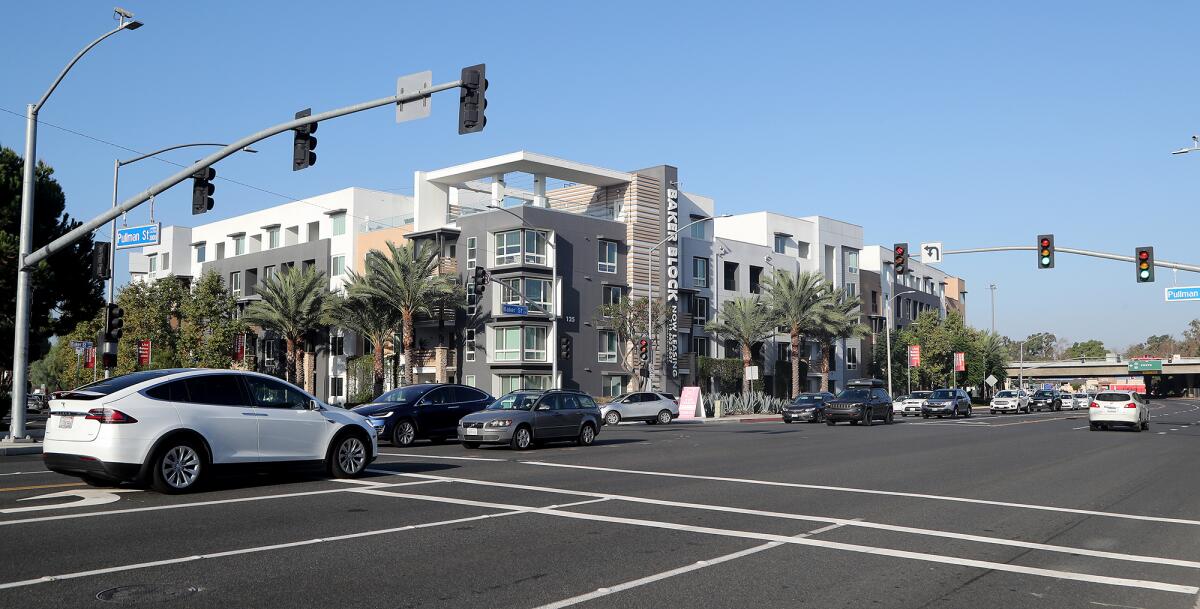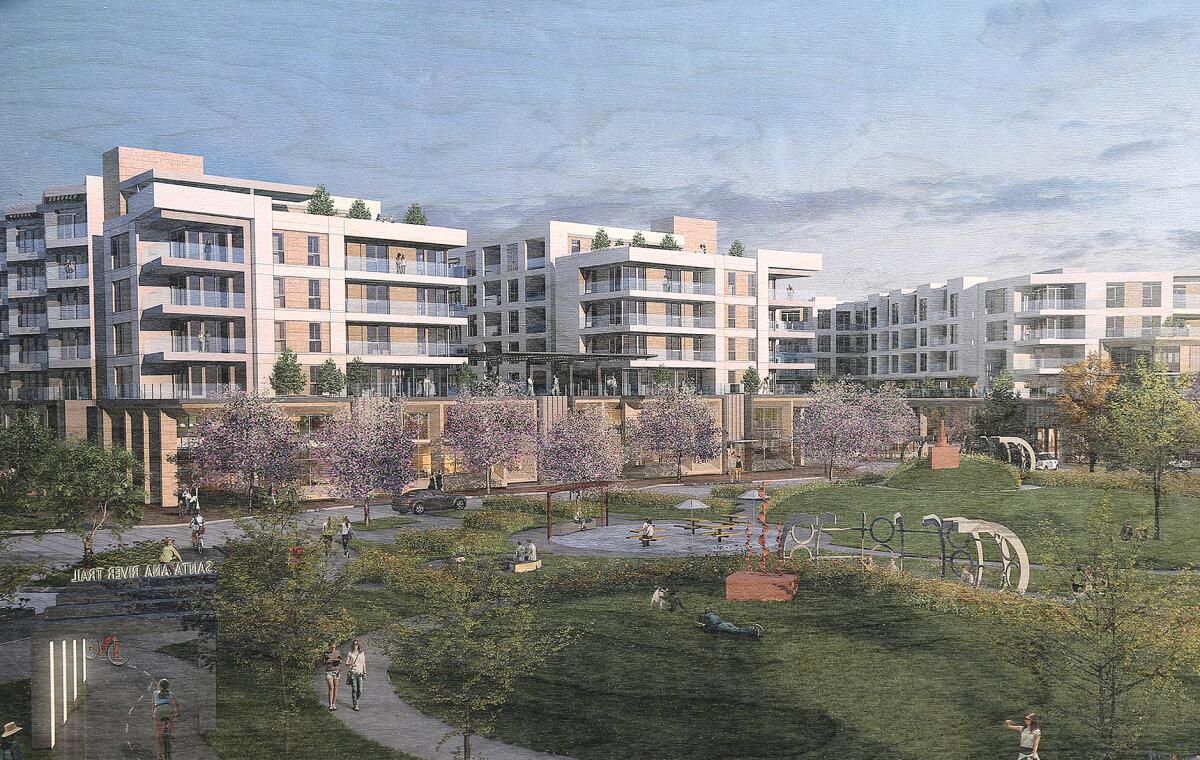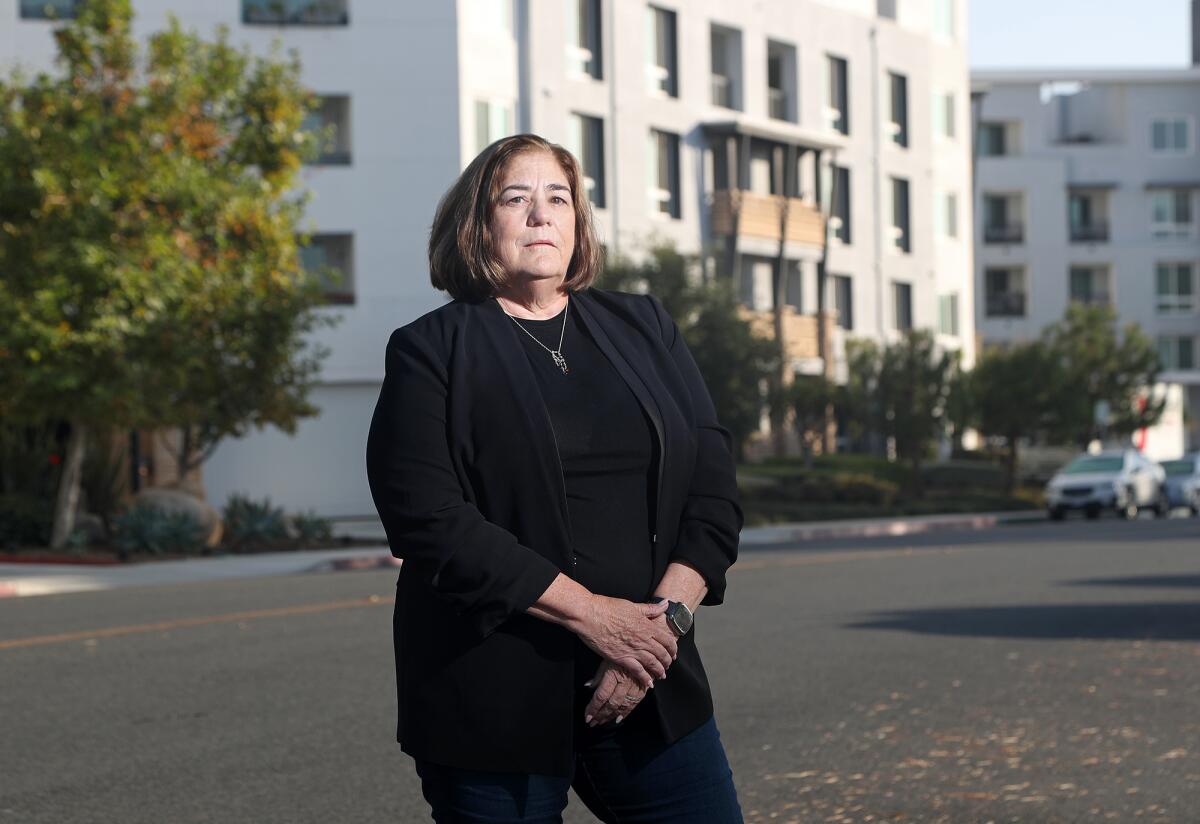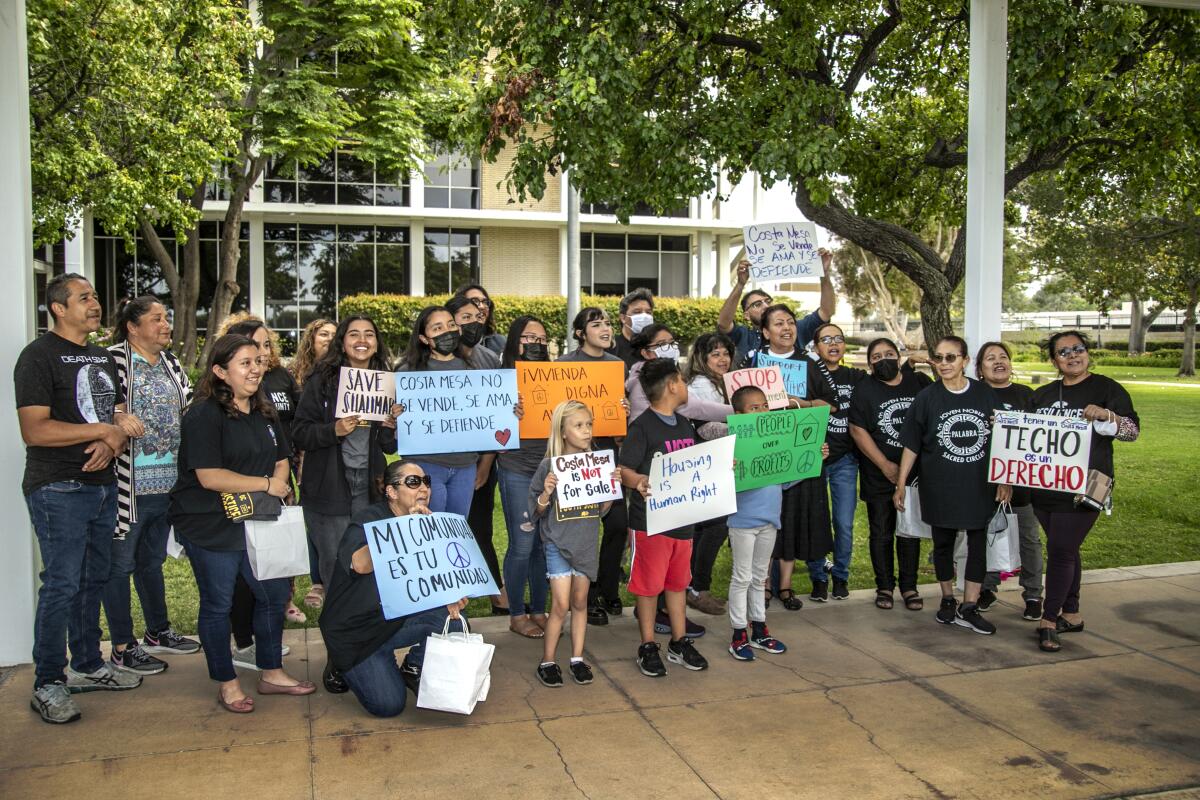Costa Mesa’s Measure K stands at the center of debate over growth, housing needs

Less than two weeks before Election Day, talk about Costa Mesa’s Measure K — which, depending on one’s viewpoint, will create a pathway to more housing or open the floodgates to large-scale developments and their negative impacts — is heating up.
And the campaign contributions, particularly from those who stand to gain from easing development restrictions, have been flowing in.
The measure doesn’t deliver any mandates on housing. Instead, it exempts certain commercial and industrial corridors from an existing rule requiring voter approval of projects that exceed the parameters of the city’s General Plan and zoning code.
Now, those who helped craft that 2016 rule — Measure Y — are leading opposition against the new Measure K. They are squaring off against others who believe Measure Y has stymied good development and the city’s ability to plan for state-mandated housing, a requirement Costa Mesa hasn’t met.
Yes on K stance

Supporters of the new ballot initiative say it would allow officials to make the zoning amendments necessary to meet state requirements and revitalize certain areas, like Harbor and Newport boulevards.
Byron de Arakal, a real estate consultant and chair of the Costa Mesa Planning Commission, supports Measure K, which he said will steer the city away from “ballot box planning” and let elected officials and residents plan for intelligent growth.
In the last six years, no major building plans have been submitted in Costa Mesa, mainly because developers are reluctant to invest in the costly and uncertain process of an election. That needs to change, de Arakal said Thursday.
“[Measure K] is not repealing Measure Y,” he said. “It’s allowing the City Council to exercise its normal planning and land use authority, which does include public review.”
Attorney Jenn Tanaka moved to Costa Mesa shortly after Measure Y was approved and was shocked to learn the city was among a handful of municipalities, including Redondo Beach and Santa Monica, with slow-growth initiatives.
A Republican and property rights advocate who’s spoken in favor of Measure K at recent City Council meetings, she says she’s skeptical of putting zoning matters before the public.
“There are a lot of people in the city who don’t have time to be poring over maps, regulations and theories about growth,” Tanaka said. “It seems unfair to ask voters to do that.”
No on K viewpoint

Leading the charge against Measure K is a group of residents organized under the political action committee “Costa Mesa First,” which put Measure Y on the ballot 2016.
Cynthia McDonald said when she and others collected more than 7,000 signatures in support of the initiative, residents were displeased with what they saw as ill-planned and too-large developments being built in the wrong places.
One such project, she said, was the Baker Block apartments, a $75-million, 240-unit complex built at the intersection of Baker and Pullman streets before Measure Y took effect.
“There are no services nearby, and it’s just this big, monolithic thing that basically goes right out to the sidewalk,” McDonald said Thursday. “We got some park fees out of [the developers], but we certainly never got a park. I don’t know where that money went.”
She said Measure Y arose from citizen concerns about the motives of then-City Council members and what seemed like a lack of transparency.
“We said, let’s take a look at this and see if we can get money out of these projects and get a community benefit,” McDonald added. “So, am I eager now to shed that right to vote? No.”
Sandy Genis, a land planner and City Council member from 1988 to 1996 and from 2012 to 2020, said citizens typically have little recourse for opposing a project. They can either sue or pursue a ballot referendum, a daunting task. Measure Y, she said, gives citizens a say in the city’s growth.
“If you have a good project, the voters will approve it. If you have a garbage barge of a project, voters won’t approve it,” Genis reasoned. “That seems fair. But Measure K pretty much guts that.”
Measure K’s coffers
While Measure K does not require developers to create more housing or affordable units, it does ease restrictions in certain areas so projects can be more easily brought forward.
That’s why Beverly Hills developer Rose Equities has chipped in $49,500 to a political action committee called “Costa Mesa 4 Everyone, Yes on Measure K.”
The PAC had received $101,100 in monetary contributions as of Oct. 22, compared to the $6,096 collected by “Costa Mesa First,” disclosure documents indicate.
Rose Equities is the developer of One Metro West, a 15.23-acre mixed use development with 1,057 apartments planned for an area north of the 405 Freeway.
Council members last year approved a 25-year development agreement that offered 1.5 acres of open space, $6 million for the city and 106 affordable housing units. That could be scuttled, however, if the project is put to a Measure Y vote and fails.
“I support the community-based effort to modify Measure Y,” Rose Equities Principal Leonard Glickman said Friday, pointing out that supporting a political campaign in one’s own interest is entirely legal. “Measure Y is a chokehold. It is causing a great deal of harm to the city of Costa Mesa.”
Rose Equities is not the only firm to support the new initiative. Campaign records show Legacy/Collier Holdings, LLC — an enterprise co-owned by the developer of a 250-unit apartment complex on Anton Boulevard — contributed $25,000 to “Costa Mesa 4 Everyone.”
Business Buyers, Inc., whose president, Manny Khoshbin, purchased the 66,652-square-foot Trinity Broadcast Network Building on Bear Street last year for $22 million — gave $20,000, documents show.
A rising demand for housing

Debate over Measures K comes as Costa Mesa attempts to certify a new housing element demonstrating it can, through zoning and planning, meet state housing mandates. Officials must plan for 11,760 residential units by 2029 and have identified the zoning amendments necessary to do so.
But, like One Metro West, those amendments would trigger a Measure Y vote. And putting them before the people would create further delay when the city has already missed an Oct. 15 extended deadline for certifying its housing element.
That setback puts Costa Mesa at risk of punitive actions from the state, including a freezing of its ability to issue permits and by-right approval of housing projects meeting certain affordability standards that would override local control.
“We are absolutely out of compliance,” said Tanaka, indicating that if Measure K does not pass, the city’s non-compliance would drag on. “Measure K is doing step one of fixing a number of problems in the city.”
Officials did not respond to questions about non-compliance and when a final draft of the housing element might be certified by California’s Department of Housing and Community Development. Spokesman Tony Dodero confirmed the City Council adopted the document in February and has twice submitted it for approval, although further revisions were requested.
“Measure Y has prohibited the city from making adjustments needed for the plan to be approved by the state,” Dodero said Thursday, indicating the document would be submitted again “shortly.”
All the latest on Orange County from Orange County.
Get our free TimesOC newsletter.
You may occasionally receive promotional content from the Daily Pilot.




